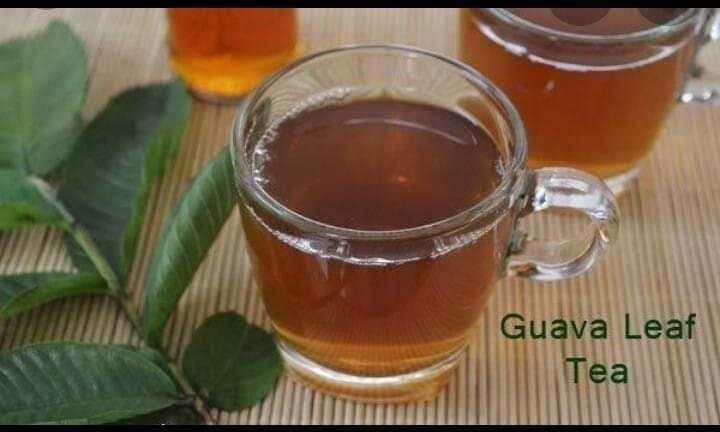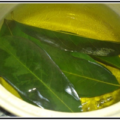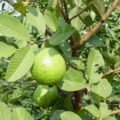Guava leaves are the leaves of the guava tree (Psidium guajava). These leaves are known for their medicinal properties and are commonly used in traditional medicine. This tropical plant grows in dry or humid heat. Both the fleshy fruit of the guava plant and the leaves are edible, with the fruit most often eaten as a snack and the leaves commonly boiled into an herbal tea.
Guava leaves are rich in antioxidants and have anti-inflammatory properties. They are also known to have antimicrobial properties and have been used to treat a variety of conditions such as diarrhea, fever, and infections. Guava leaves are also believed to have a positive effect on blood sugar levels and may be useful in the management of diabetes. Guava leaves can be consumed in different forms, such as tea, as a supplement, or as an extract.
What is fertility?
Fertility is about the ability to get pregnant. More than 8 out of 10 couples where the woman is aged under 40 will get pregnant within one year if they have regular unprotected sex. More than 9 out of 10 couples will get pregnant within 2 years. Fertility issues affect up to 15 of couples. The road to parenthood can sometimes be a huge challenge, but know you’re not alone in those challenges. Luckily, there are a few natural ways to increase your fertility and guava can help you achieve this.
How Guava Leaves Increase Your Chances of Getting Pregnant
There is some evidence to suggest that guava leaves may have a positive effect on fertility in both men and women. Here is how guava leaves can increase your chances of getting pregnant;
Source of Natural Folic Acid
Guava’s leaf contains folic acid, folate supplementation prior to conception has been associated with a greater chance for getting pregnant, improved success with fertility treatments, and reduced risk of neural tube defects in the baby, Folic acid is a vitamin (B9). It is found in certain foods like guava and it can also be taken as tablets. If you’re planning to have a baby, it’s important that you take folic acid tablets for two to three months before you conceive. This allows it to build up in your body to a level that gives the most protection to your future baby against neural tube defects, such as spina bifida.
When it comes to guava leaves and fertility in a man, folate levels measured in semen have been associated with sperm count and health. Folic acid is necessary for DNA synthesis. Low levels of folic acid have been associated with a decreased sperm count and decreased sperm motility. In a recent study, the combination of zinc and folic acid results in a 75% increase in total normal sperm count in sub-fertile men. From this, we can see that folate or folic acid plays an important role in sperm health.
Guava Leaves and Ovulation
Ovulation is when a mature egg is released from the ovary. The egg then moves down the fallopian tube where it can be fertilized. If sperm are in the fallopian tube when the egg is released, there is a good chance that the egg will be fertilized, creating an embryo, which can grow into a baby. Studies suggest that folic acid may also increase fertility. Women who take multivitamins with folic acid are more likely to ovulate (produce eggs). Previous studies found that women trying to conceive had somewhat higher pregnancy rates when taking folic acid supplements. Taking Guava rich folic acid tea can help boost ovulation and fertility in women thus increasing your chance of getting pregnant.
Guava Leaves and Menstruation
There’s a very good chance if you are experiencing a regular monthly period, you are fertile. While it is true that women have a finite number of eggs, lack of conception is predominately due to other causes. Many women experience dysmenorrhea (painful symptoms of menstruation), such as stomach cramps. However, there is some evidence that guava leaf extract can reduce the pain intensity of menstrual cramps. Period cramps that are caused by the normal activity of prostaglandins are called primary dysmenorrhea. This type of painful period should not negatively impact your fertility. But period cramps that are caused or worsened by other diseases or abnormalities of the reproductive system are called secondary dysmenorrhea. It’s this type of painful period that can be associated with trouble getting pregnant. The results of a study from 2007 suggest that taking guava leaf extract supplements may relieve menstrual pain in women with primary dysmenorrhea. Participants who took 6 milligrams (mg) of the extract each day experienced less menstrual pain than those taking ibuprofen or a placebo. But there is no evidence that it helps with secondary dysmenorrhea. Another study in women with irregular menstrual cycles found that consuming guava leaf tea twice a day for six months improved the regularity of their cycles.
Help Hypertensive Couples Conceive
Existing data suggest an association between hypertension and impaired semen quality. Men diagnosed with hypertension have a lower semen volume, sperm motility, total sperm count, and motile sperm count relative to men in a cohort who did not carry a diagnosis of hypertension. High blood pressure is also a problem for many women. Approximately five percent of pregnant women have chronic high blood pressure. In the infertility population, the percentage of women with chronic high blood pressure is even higher. That’s because the average woman with infertility is older and has a higher incidence of medical problems than the general population of pregnant women. Consuming guava leaf extract may help lower high blood pressure. A 2016 test tube study found that the extract had an antihypertensive effect in rat tissues, which means that it may have the potential to reduce blood pressure. This effect may be due to the leaf extract’s antioxidant properties. Antioxidants may lower blood pressure by helping to expand blood vessels. ALSO SEE: How To Use Guava Leaves For Flat Tummy
Guava and Body Cleansing
Cohort studies have shown some evidence to suggest that taking vitamins may increase fertility. A recent Cochrane systematic review also reported on the effect of antioxidants in female subfertility. Here, antioxidants were associated with increased live-birth and clinical pregnancy rates. Studies indicate that oxidative stress is involved in the pathophysiology of subfertility, and antioxidants are thought to reduce the damage caused by oxidative stress. Guava has a high content of protocatechuic acid, quercetin, ferulic acid, ascorbic acid, quercetin, gallic acid and caffeic acid which are important antioxidants. These compounds show the anti-oxidant activity. Quercetin has free radical balancing activity. Its reducing power is much higher than all other compounds. This antioxidant rich nature help guava leaves to clean the womb and the entire body system prior to conception. However there is no evidence to suggest that guava leaves can be used for hormonal imbalance.
How To Prepare Guava Leaf Tea For Fertility
Making this recipe is simple, you simply sun dry your guava leaves and gather your dried guava herbs in a bowl.
Transfer the herbs into an airtight container and store out of direct sunlight.
Pouring hot tea into a mug from a purple teapot.
Guava Leaf Hot Tea
- To make a hot guava leaf herbal fertility tea, steep 1/4 cup herbs in a coffee or tea press.
- Cover herbs with water and allow to steep for 10 minutes.
- Strain guava leaf, add honey or lemon (as desired), and enjoy!
Guava Leaf Herbal Tea Infusion (Iced Tea)
- If you’d like to make a guava leaf fertility tea herbal infusion, simply add 1/2 cup guava leaf blend to a quart-size Mason jar.
- Fill with tepid water to the top, cover the jar with a lid, and leave at room temperature overnight.
- In the morning, strain out the guava leaf and enjoy tea over ice, sweetened with honey, and garnished with a lemon wedge.
Store any remaining tea in the refrigerator.






